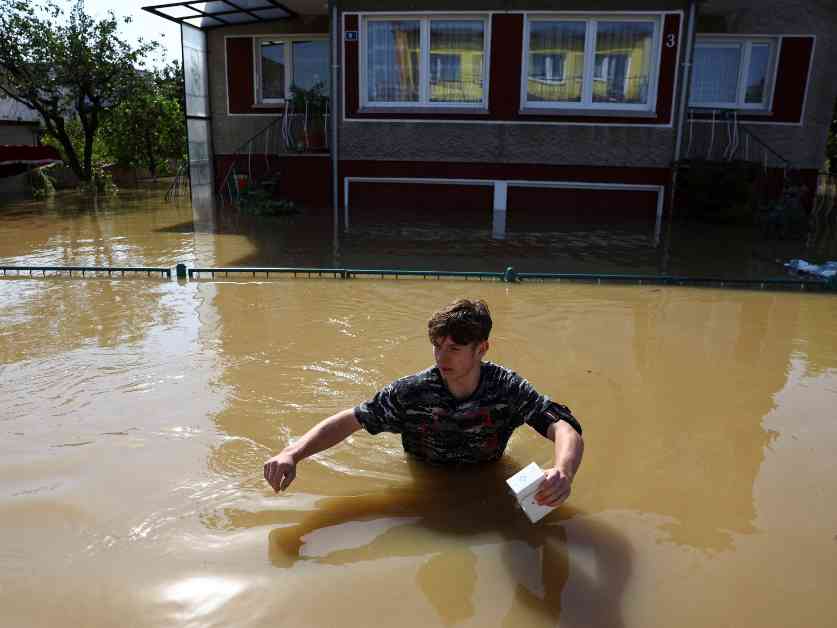Central Europe Flooding: Death Toll Rises to 21, More Areas on Alert
Central Europe has been hit hard by heavy rainfall in recent weeks, leading to devastating floods in countries such as Austria, the Czech Republic, Hungary, Poland, Romania, and Slovakia. The aftermath of Storm Boris has left a trail of destruction and claimed the lives of at least 21 people, with more areas still on high alert for potential flooding.
In Poland, volunteers and emergency workers have been working tirelessly to secure river banks in the historic city of Wroclaw as residents brace themselves for potential flooding from the Oder and Bystrzyca rivers. The city’s zoo has called for volunteers to help protect animal enclosures with sandbags, while efforts are underway to move valuable archives to higher ground to prevent damage.
Areas along the Czech-Polish border have been among the hardest hit, with gushing rivers causing widespread devastation to historic towns, collapsing bridges, and destroying homes. The situation remains tense as residents wait anxiously for rivers to burst their banks, while tens of thousands of households in both the Czech Republic and Poland are still without power or access to clean water.
In neighboring countries, the impact of the flooding has been equally severe. Romania has reported seven fatalities, while Austria and the Czech Republic have seen five and three deaths respectively. In Hungary, authorities have put mobile dams in place to limit flooding from the Danube, with Budapest preparing for record-high water levels and taking precautionary measures to protect its residents and infrastructure.
Reconstruction and Relief Efforts
In response to the widespread damage caused by the floods, the Polish government has announced plans to redirect funds from the European Union for reconstruction efforts. Minister for Funds and Regional Development, Katarzyna Pelczynska-Nalecz, stated that significant financial resources would be allocated to building embankments, reservoirs, and dams to mitigate the impact of future flooding events.
In the Czech Republic, Governor Josef Belica reported that 15,000 people had been evacuated in the Moravia-Silesia region, with helicopters delivering aid to areas cut off by floodwaters. The damage caused by the floods in Slovakia is estimated at 20 million euros, prompting Environment Minister Tomas Taraba to emphasize the importance of investing in flood protection measures to prevent similar disasters in the future.
Climate Change and Extreme Weather Events
Experts have pointed to climate change as a key factor contributing to the frequency and intensity of extreme weather events such as torrential rains and floods. Andreas von Weissenberg of the International Federation of Red Cross and Red Crescent Societies highlighted the need for further studies to determine the link between climate change and the recent flooding in Central Europe.
While the current floods have been described as “historic,” von Weissenberg cautioned that climate change has the potential to escalate the severity of such events in the future. As the global community grapples with the implications of climate change, it is crucial for governments and organizations to prioritize sustainable practices and invest in resilience-building measures to protect vulnerable communities from the impacts of extreme weather.



























